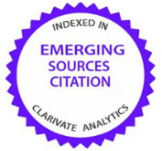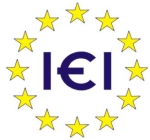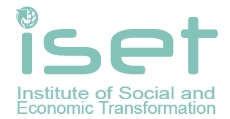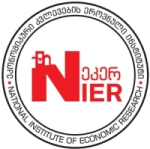Criterion for Ensuring the Effectiveness of the Management of the Global Maritime Industry
Abstract
Introduction. The significant dynamic nature of modern geopolitical and military threats sets new requirements for evaluating the criteria effectiveness of solving maritime industry management problems, requires new methodological approaches and mathematical models for evaluating criteria, and determines a new architecture of information systems in the structure of which these approaches and models are implemented. This makes the issue of the analysis of the application of criteria and the development, research, and implementation of such models and systems extremely relevant.
Aim and tasks. The purpose of the study is to create a methodological approach to evaluating the criteria that characterize the effectiveness of the management of the maritime industry, with the dynamic change of criteria due to the influence of threats and challenges.
Results. A methodological approach has been developed to evaluate the criteria that characterize the effectiveness of the management of the maritime industry based on the model for assessing the convergence of the absolute values of the first derivatives of the criteria over time, which, at short time intervals, can be considered as criteria change trends. It has been established that instead of reducing transportation costs, management switches to the principle of ensuring optimal costs, which leads to an increase in the cost of freight and shock reactions in the sea transportation market. It was established that it is advisable to use the LSCI criterion as an indicator of the negative effect of “local optimization”. After determining the development trends of the criteria, their evaluation as well as the assessment of their convergence were carried out, which became the basis for proposing directions for improving the efficiency of maritime industry management.
Conclusions. The developed methodological approach and the mathematical model of its implementation make it possible to conduct both quantitative and qualitative analyses of the effectiveness of management of the maritime industry. To increase the efficiency of management, it is proposed: to integrate port community systems; to increase the stability of the port infrastructure so that it can function in crisis conditions; to achieve coordination of management actions at all levels; to avoid “local optimization” and introduce integral optimization; to respond not only to direct threats but also to detect the cascading effects of threats.
Keywords:
criteria, management, efficiency, maritime industry, mathematical model.References
Agatić, A., & Kolanović, I. (2020). Improving the seaport service quality by implementing digital technologies. Scientific Journal of Maritime Research, 34, 93–101. https://doi.org/10.31217/p.34.1.11
Alphaliner. (2022). The Worldwide Reference in Liner Shipping. https://public.alphaliner.com
Azarova, A. O., Shyian, A. A., & Nikiforova, L. A. (2020). Development of the secure consolidated information resource for analysis of the activities of sea ports of Ukraine. Information technologies and computer engineering, 2, 27-36. https://doi.org/10.31649/1999-9941-2020-48-2-27-36
Balanovska, T., Havrysh, O., & Gogulya, O. (2019). Developing enterprise competitive advantage as a component of anti-crisis management. Entrepreneurship and Sustainability Issues, 7(1), 303-323. https://doi.org/10.9770/jesi.2019.7.1(23)
Balci, G. (2021). Digitalization in Container Shipping Services: Critical Resources for Competitive Advantage. Journal of ETA Maritime Science, 9, 3–12. https://doi.org/10.4274/jems.2021.47364.
Balci, G., Cetin, I. B., & Esmer, S. (2018). An evaluation of competition and selection criteria between dry bulk terminals in Izmir. Journal of Transport Geography, 69, 294-304. https://doi.org/10.1016/j.jtrangeo.2018.05.011
Bazaluk, O., Zhykharieva, V., Vlasenko, O., Nitsenko, V., Streimikiene, D., & Balezentis, T. (2022). Optimization of the Equity in Formation of Investment Portfolio of a Shipping Company. Mathematics, 10(3), 363. https://doi.org/10.3390/math10030363
Bottalico, A., Vanelslander, T., & Verhoeven P. (2022). Innovation and labor in the port industry: A comparison between Genoa and Antwerp. Journal of Business Logistics, 43(3), 368-387. https://doi.org/10.1111/jbl.12303
Çavuşoğlu, D., Zorba, Y., & Esmer, S. (2022). A Set of Criteria for Logistics Center Development: A Fuzzy Analytic Hierarchy Process. Journal of ETA Maritime Science, 10(1), 47-60, https://doi.org/10.4274/jems.2022.37980
Del Giudice, M., Di Vaio, A., Hassan, R., & Palladino, R. (2022). Digitalization and new technologies for sustainable business models at the ship-port interface: A bibliometric analysis. Maritime Policy & Management, 49, 410–446. https://doi.org/10.1080/03088839.2021.1903600
Gavalas, D., Syriopoulos, T. & Roumpis, E. (2022). Digital adoption and efficiency in the maritime industry. Journal of Shipping and Trade, 7, 11. https://doi.org/10.1186/s41072-022-00111-y
Ghorbani, M., Acciaro, M., Transchel, S., & Cariou, P. (2022). Strategic alliances in container shipping: A review of the literature and future research agenda. Maritime Economics and Logistics 24, 439–465. https://doi.org/10.1057/s41278-021-00205-7
Golubkova, I., Sienko, O., Lysenko, N., Frasyniuk, T., & Parkhomenko, I. (2021). Criteria for the management of a sustainable and safe positioning of the fleet in the conditions of globalization. Naukovyi Visnyk Natsionalnoho Hirnychoho Universytetu, 2, 178-183. https://doi.org/10.33271/nvngu/2021-2/178
Jović, M., Tijan, E., Vidmar, D., & Pucihar, A. (2022). Factors of Digital Transformation in the Maritime Transport Sector. Sustainability, 14, 9776. https://doi.org/10.3390/su14159776
Katerna, O. (2018). Research of market development of intelligent transport systems in the world, Economics of Development. 17(3), 17-29. http://dx.doi.org/10.21511/ed.17(3).2018.02
Kubalskyi, O. (2022). Social Turbulence as the Scientific Phenomenon: Operational and Strategic Change. Philosophy and Cosmology, 29, 17-25. https://doi.org/10.29202/phil-cosm/29/2
Lam, J. S. L., & Wong, H. N. (2018). Analysing business models of liner shipping companies. International Journal of Shipping and Transport Logistics, 10(2), 237-256. https://doi.org/10.1504/IJSTL.2018.090078
Makarenko, M., Ustynov, R., Sienko, H., & Babachenko, M. (2019). Creating the Approach for the Evaluation Level of the Efficiency of the Organizational Culture of the Sea Port. In Proceedings of the 2019 7th International Conference on Modeling, Development and Strategic Management of Economic System (MDSMES 2019), 249-254. https://doi.org/10.2991/mdsmes-19.2019.47
Noble, P. (2019). Growth in the Shipping Industry: Future Projections and Impacts. In: The Future of Ocean Governance and Capacity Development (pp. 456–461). Brill, Nijhoff. https://doi.org/10.1163/9789004380271_079
Praise, I., & Rapina, R. (2022). The Role of Internal Audit, Leadership Effectiveness, and Organizational Culture in Risk Management Effectiveness. European Journal of Management Issues, 30(2), 83-91. https://doi.org/10.15421/192208
Remzina, N. (2020). Factor-criteria evaluation of organizational-economic preconditions
of the development of the permanent structures of transport systems of Ukraine. Academic notes of TNU named after V.I. Vernadskyi, 31(2), 132-139. https://doi.org/10.32838/2523-4803/70-2-21
Rony, A.H., Kitada, M., Dalaklis, D., Ölçer, A. I. & Ballini, F. (2019). Exploring the new policy framework of environmental performance management for shipping: a pilot study. WMU Journal of Maritime Affairs, 18, 1–24. https://doi.org/10.1007/s13437-019-00165-z
Russo, F., & Musolino, G. (2020). Quantitative characteristics for port generations: The Italian case study. International Journal of Transport Journal of Transport Development and Integration, 4, 103–112. https://doi.org/10.2495/TDI-V4-N2-103-112
Sazonets, O., Los, Z., Perevozova, I., Samoilov, P., & Zhadanova, Yu. (2020). Labor and assets optimization in the context of increasing the international information company efficiency. Naukovyi Visnyk Natsionalnoho Hirnychoho Universytetu, 6, 155–161. https://doi.org/10.33271/nvngu/2020-6/155
Suliman, K. R., Rahim, S. A., Ramayah, T., & Degeras, D. K. (2019). Measuring technical efficiency of dry bulk terminal performance using the frontier application of data envelopment analysis: A proposed framework. Journal of Physics, 1366, 012100. https://doi.org/10.1088/1742-6596/1366/1/012100
Svyrydenko, D., & Revin, F. (2022). Assessing the Policies of Ukraine’s Sustainable Development: Heading toward 2030 Strategy Realization. Ukrainian Policymaker, 11, 85-91. https://doi.org/10.29202/up/11/11
Tijan, E., Jović, M., Aksentijević, S., & Pucihar, A. (2021). Digital transformation in the maritime transport sector. Technological Forecasting and Social Change, 170, 120879. https://doi.org/10.1016/j.techfore.2021.120879
UNCTAD. (2022). Review of Maritime Transport 2022. https://unctad.org/system/files/official-document/rmt2022overview_en.pdf
Verhoef, P.C., Broekhuizen, T., Bart, Y., Bhattacharya, A., Dong, J. Q., Fabian, N., & Haenlein, M. (2019). Digital transformation: A multidisciplinary reflection and research agenda. Journal of Business Research, 122, 889–901. https://doi.org/10.1016/j.jbusres.2019.09.022.
Warner, K.S.R., & Wäger, M. (2019). Building dynamic capabilities for digital transformation: An ongoing process of strategic renewal. Long Range Planning, 52(3), 326–349. https://doi.org/10.1016/j.lrp.2018.12.001
World Trade Organization (2022). Trade Facilitation Agreement. https://tfadatabase.org/en
Yarmol, L., Tsebenko, S., Andrusіak, I., Kovalchuk, O., & Markovskyi, V. (2021). International and national guarantees of economic security. Financial and Credit Activity Problems of Theory and Practice, 3(38), 358–367. https://doi.org/10.18371/fcaptp.v3i38.237468
Yavorska, A. F. (2018). Criterial limitations of sustainable development of local maritime transport complexes. Economy and Society, 17, 182186. https://doi.org/10.32782/25240072/20181727
Zeynalli, L., & Rahimli, E. (2022). The Role of Human Capital in Increasing Tourism Potential in a Post-Conflict Situation. Future Human Image, 17, 101-110. https://doi.org/10.29202/fhi/17/12
If the article is accepted for publication in the journal «Economics. Ecology. Socium» the author must sign an agreementon transfer of copyright. The agreement is sent to the postal (original) or e-mail address (scanned copy) of the journal editions.





















